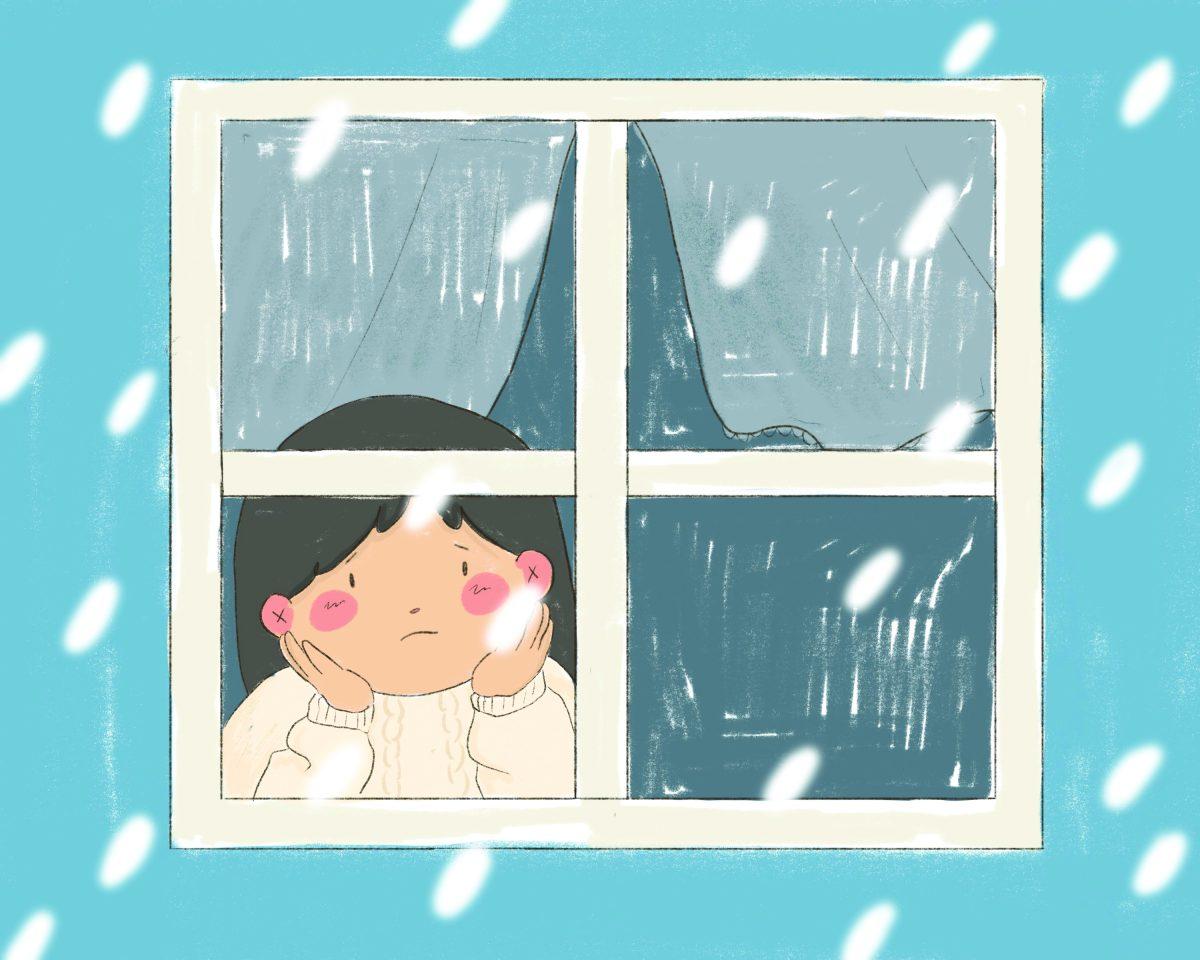It’s that time of year again: Temperatures drop, the wind howls and the sky stays a semi-permanent state of gray. Many students struggle to maintain their mental health during the colder months, but with the right tools, it doesn’t have to be a challenge.
Lily Palmer, a third-year studying psychology and criminology and the lead student wellness coach at Wellness and Recreation, said students may struggle during the winter months because the cold weather makes people want to stay inside more often, which prevents them from engaging in typical wellness activities.
“I think that that takes a big toll on student wellness, not only for the benefits of being outdoors, but also having access to resources, clubs, friends that they would typically hang out with maybe more in the warmer months, for example, like services or the gym or going to club events, or just doing any activities outside,” Palmer said.
Students may also have to make more of an effort to engage in self-care activities, hobbies and other wellness activities that are logistically easier during warmer months, which may make them feel less enjoyable.
“I think one of the things that’s hard as a student is [that] self care can feel like a chore sometimes,” Palmer said. “And if self care is kind of viewed as a chore, it’s not as enjoyable. It’s not doing what self care is supposed to do.”
Finding nourishing activities, hobbies and interests outside of school with others is vital to maintaining mental health not just during winter, but year-round. In addition to solitary self-care, Isabel Tremble, a second-year studying agriculture science, advocates students find an activity they can enjoy with other people that doesn’t relate to their major.
“Your life doesn’t revolve around school,” Tremble said. “You also need to do something that’s more enjoyable than just studying and doing assignments. … If you can, find a club on campus that is not necessarily related to your major, but something that you just enjoy doing on a regular basis so that you’re not always just dreading the next day of classes.”
However, setting aside that time to nourish oneself is vital. Tremble said setting aside personal time for things she enjoys is an integral part of her routine.
“I take a time out of my day, whether it’s midday or before bed, and do something that I enjoy,” Tremble said. “I like to do painting or read a book, or watch my favorite TV show, so I can settle down from all the school activities and just do what I want to do.”
Liz Aimone, coordinator of Wellness Programs at Wellness and Recreation, said finding clubs or other activities outside of a student’s major is critical to maintaining a well-rounded sense of balance.
“I think that can lead to other paths that still support your overall purpose,” Aimone said. “That includes, interests, volunteering, a sense of belonging and community.”
Nathanael Leclercq, a second-year studying mathematics, said when thinking about wellness activities, students should strike a balance between physical and mental exercise.
“I’m a very competitive chess player; I play in a lot of tournaments and working on my body helps me maintain my mind,” Leclercq said. “They go hand in hand. … If you’re only doing exercise, then you’re not going to be engaging in as much critical thinking, and if you’re only doing mental exercise, then your body is gonna get weak.”
Palmer said the Wellness and Recreation center is an inherently social space, which gives students an opportunity to engage with their communities in a way they might not at home.
For any students who may feel stuck inside or are feeling the effects of winter’s gray days, Leclercq said students should reach out to people they can count on and engage in social connection.
“Keeping in tune with how you feel, I mean, no matter the season, is an important thing,” Leclercq said. “It’s important to just maybe reach out to a friend or to a parent or sibling, just someone that knows you and say, ‘I don’t know where I’m at. I need some help. Can you help me work through this?’ And hopefully, they’ll help you.”
For additional resources, the Wellness Center offers four free wellness coaching sessions per semester to all students. The Wolfpack Wellness website has an exhaustive list of wellness resources available to students, and the Counseling Center is also open by appointment.








